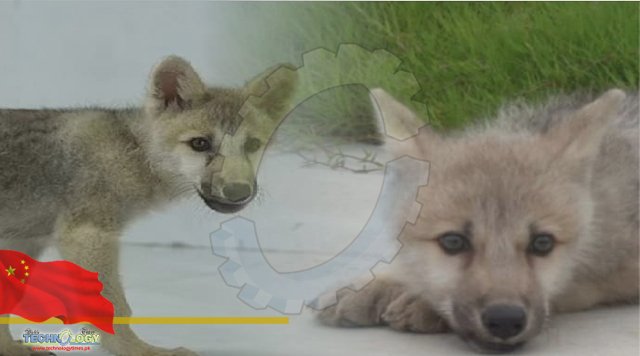A Chinese pet-cloning company has announced the birth of the World’s First Cloned Wolf (Canis lupus arctos), which was carried to term by an unlikely surrogate mother – a beagle.

The cloned female wolf pup, named Maya, and her beagle mother were unveiled to the world in a brief video at a press conference held September 19 by the Sinogene Biotechnology Company in Beijing, World’s First Cloned Wolf, The video was released 100 days after Maya was born: on June 10 in a laboratory in Beijing, according to Sinogene representatives. Normally, Sinogene specializes in cloning dead pets, such as cats, dogs, and horses, for private clients. But the company now wants to use its expertise to help clone endangered species for conservation purposes, Maya was cloned using DNA collected from a fully grown Arctic wolf, also named Maya, that died in captivity at Harbin Polarland, a wildlife park in northeast China. The original Maya, who was born in Canada before being shipped to China in 2006, died due to old age in early 2021, The cloning of Maya was successfully completed “after two years of painstaking efforts,” Mi Jidong, general manager of Sinogene, said at the company’s press conference, Sinogene researchers originally created 137 Arctic wolf embryos by fusing skin cells from the original Maya with immature egg cells from dogs, using a process known as somatic cell nuclear transfer (SCNT). Of those embryos, 85 were successfully transplanted into seven beagle surrogates. From those transplanted embryos, just one fully developed during pregnancy,
The researchers used beagle surrogates because there were not enough female wolves in captivity for the scientists’ experiments.Luckily, dogs share enough DNA with wolves for the hybrid pregnancy to gestate successfully. World’s First Cloned Wolf, Maya now lives with her surrogate mother at a Sinogene lab in Xuzhou, eastern China, but the wolf pup will eventually be transferred to Harbin Polarland to live with other Arctic wolves. However, the park’s keepers believe she will have to be slowly introduced to the rest of the pack because of her isolated upbringing, Sinogene also revealed that a second Arctic wolf clone, created using DNA from an unknown male, was due to be born Thursday, Sept. 22. However, there have been no confirmed reports so far of the pup’s birth. The company also announced a new partnership with the Beijing Wildlife Park to clone more captive species in the future, although no specific projects have yet been announced, In 2019, Sinogene was also involved with a project that produced six identical German shepherd clones.
Source: This news is originally published by sciencealert